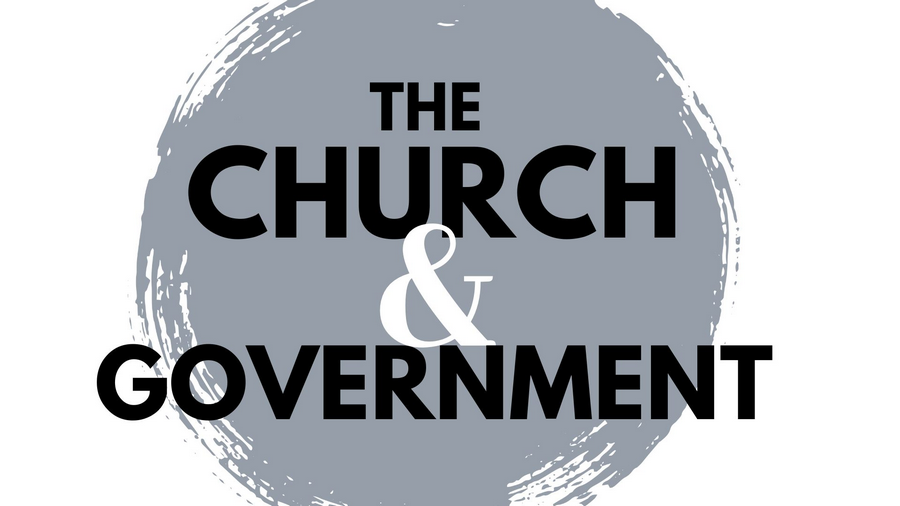October 31, 1517, will forever be remembered in church history as the day when an Augustinian monk by the name of Martin Luther nailed his 95 Theses on the door of All Saints Church in Wittenberg, sparking the beginning of the Protestant Reformation. The Reformation had far-reaching spiritual, political, economic, and social impacts on European societies at large, which would ultimately pave the way for future movements such as the Renaissance, the Enlightenment, and the Great Awakening. Theologians began to see things in Scripture differently than what was taught to them by the Roman Catholic Church. In a time when the true Church was finally proclaiming the very gospel that was suppressed by Rome century after century, our understanding and development of theology began to truly skyrocket in a way not seen since the days of the early church fathers. It is no wonder then that our understanding of Romans 13 also began to further develop.
As the Protestant reformers considered the Church’s role in submitting to the governing authorities, a view that we will refer to as the “Conditional Interpretation” began to emerge. In this particular view, the Church’s duty of submission to the government goes beyond the type of obedience stipulated in the Strict Interpretation. Instead, the state has a moral duty that the Church is to hold them accountable for by only obeying the government when it is functioning in accordance to what God has prescribed for them to do in Romans 13. To put it another way, if the government is not rewarding good behavior and punishing evildoers according to Romans 13:3-4, then it is not a “minister of God” that a Christian can truly submit to. The Christian is to obey the government as prescribed in Romans 13 under the condition that the government is exercising authority that is biblically proper.
To understand why this view really caught on by the time of the Puritans, we must understand the historical context of 16th Century Europe. The governments which existed until that time were nothing like the constitutional republic that we live under in America today. There was no separation of church and state, and the Catholic Church had significant political power as well as religious influence over the people in Europe. Fast forward to the 17th Century, and although there were nations in Europe that were Protestant in terms of their official state religion, the “indistinguishable church and state” paradigm was very much still in effect. But the seeds of challenging the status quo that were planted during the Reformation in the 16th Century were well sprouted by the time of the Puritans, and true Christians living in a nation that had an official state religion such as Roman Catholicism or the Church of England found themselves in a situation where they were persecuted by the visible church that was bearing the sword of the government.
What did this mean for the Puritans? When they openly opposed the official state religion, they were opposing the government itself. For example, when the Puritans in England refused to use the Book of Common Prayer that was mandated by the state-sanctioned church in 1662, they were forced out of their clergy positions in what became known as the Great Ejection. It is important to note that there was nothing inherently sinful or heretical about the Book of Common Prayer, but it was the principle of the matter, the idea that the state decides how churches conduct their services, that the Puritans and Nonconformists vehemently protested despite knowing what such an action would cost them. As a result, the Puritans saw such governments not as true governments that adhere to their divinely instituted functionality, but as usurpers and agents of the devil that forfeit their status of being the legitimate governments that Paul commands Christians to submit to in Romans 13. They placed an emphasis on the distinction between the government as an institution and the people in the government, and saw the kind of submission Paul taught in Romans 13 not as obedience to individual tyrants on the mere basis of their authoritative positions, but as general reverence towards the God-ordained institution of government. It should be noted, however, that the Puritans were in no way attempting to overthrow or undermine what had been understood by the Church since the early church fathers. In his commentary on Romans 13, Matthew Poole wrote the following:
“He doth not say, be obedient, but be subject; which is a general word, (as some have noted), comprehending all other duties and services. This subjection must be limited only to lawful things; otherwise, we must answer as they did, Acts 4:19: or as Polycarpus did; when he was required to blaspheme Christ, and swear by the fortune of Caesar, he peremptorily refused, and said: We are taught to give honour to princes and potentates, but such honour as is not contrary to true religion.”
This gives us a meaningful insight as to what was going through the minds of the Puritans as they were thinking through these issues, because we can clearly see that they were not by any means attempting to come up with some new way of interpreting Romans 13; they were simply basing their views on the theological giants who came before them. Just as Luther was not attempting to create a new sect of Christianity, and just as the Protestant reformers were not attempting to invent the doctrines of grace, the Puritans were not attempting to redefine the meaning of Paul’s instructions about submission to government. All of these godly men derived their views from Scripture alone and were in agreement with what the early church fathers taught.
Though the Conditional Interpretation has greatly waned within modern American evangelicalism, it still remains popular in some reformed circles. So, what keeps the Conditional Interpretation of Romans 13 alive and well, despite the fact that we are no longer under the type of state-church system that fueled the rise of this interpretation in the first place? To put it simply, there are various advantages that come with the Conditional Interpretation. First of all, it allows the Church to hold governing authorities accountable by reminding them of their divinely instructed limits, thereby creating a checks and balances system that helps restrain tyranny. Secondly, it places a heavy emphasis on the fact that civil governments have only two purposes according to Scripture: rewarding good behavior and punishing evildoers. It was in fact this understanding of limited government that would eventually play a vital role in America’s founding. On the other hand, what is perhaps the biggest drawback of the Conditional Interpretation is the lack of support in Romans 13:1-7 as well as 1 Peter 2:13-14. In fact, when we read Peter’s account of the exact same command, it seems to run contrary to the idea that the Bible gives us a distinction between government institutions and government leaders, as is necessary for the Conditional Interpretation to be a valid one. Despite these challenges, however, it is important to remember that the Puritans were not mishandling Scripture. They were simply a product of their time, a time when the church and state had been inseparable entities for centuries. And it was the Conditional Interpretation of Romans 13 that would one day be the American colonists’ justification for declaring their independence from the Crown, which we will discuss further in next week’s blog.

